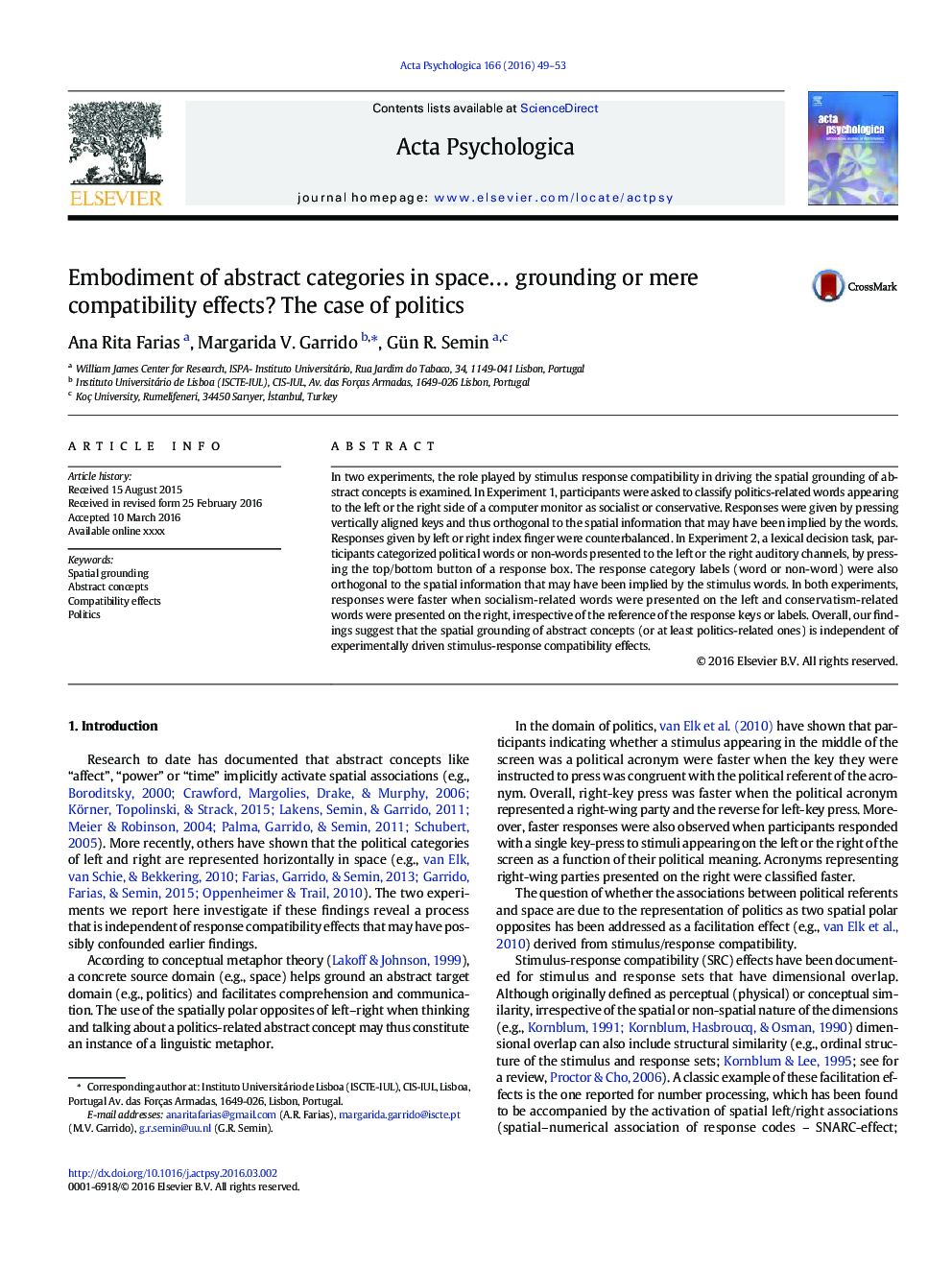| Article ID | Journal | Published Year | Pages | File Type |
|---|---|---|---|---|
| 7277102 | Acta Psychologica | 2016 | 5 Pages |
Abstract
In two experiments, the role played by stimulus response compatibility in driving the spatial grounding of abstract concepts is examined. In Experiment 1, participants were asked to classify politics-related words appearing to the left or the right side of a computer monitor as socialist or conservative. Responses were given by pressing vertically aligned keys and thus orthogonal to the spatial information that may have been implied by the words. Responses given by left or right index finger were counterbalanced. In Experiment 2, a lexical decision task, participants categorized political words or non-words presented to the left or the right auditory channels, by pressing the top/bottom button of a response box. The response category labels (word or non-word) were also orthogonal to the spatial information that may have been implied by the stimulus words. In both experiments, responses were faster when socialism-related words were presented on the left and conservatism-related words were presented on the right, irrespective of the reference of the response keys or labels. Overall, our findings suggest that the spatial grounding of abstract concepts (or at least politics-related ones) is independent of experimentally driven stimulus-response compatibility effects.
Related Topics
Life Sciences
Neuroscience
Cognitive Neuroscience
Authors
Ana Rita Farias, Margarida V. Garrido, Gün R. Semin,
